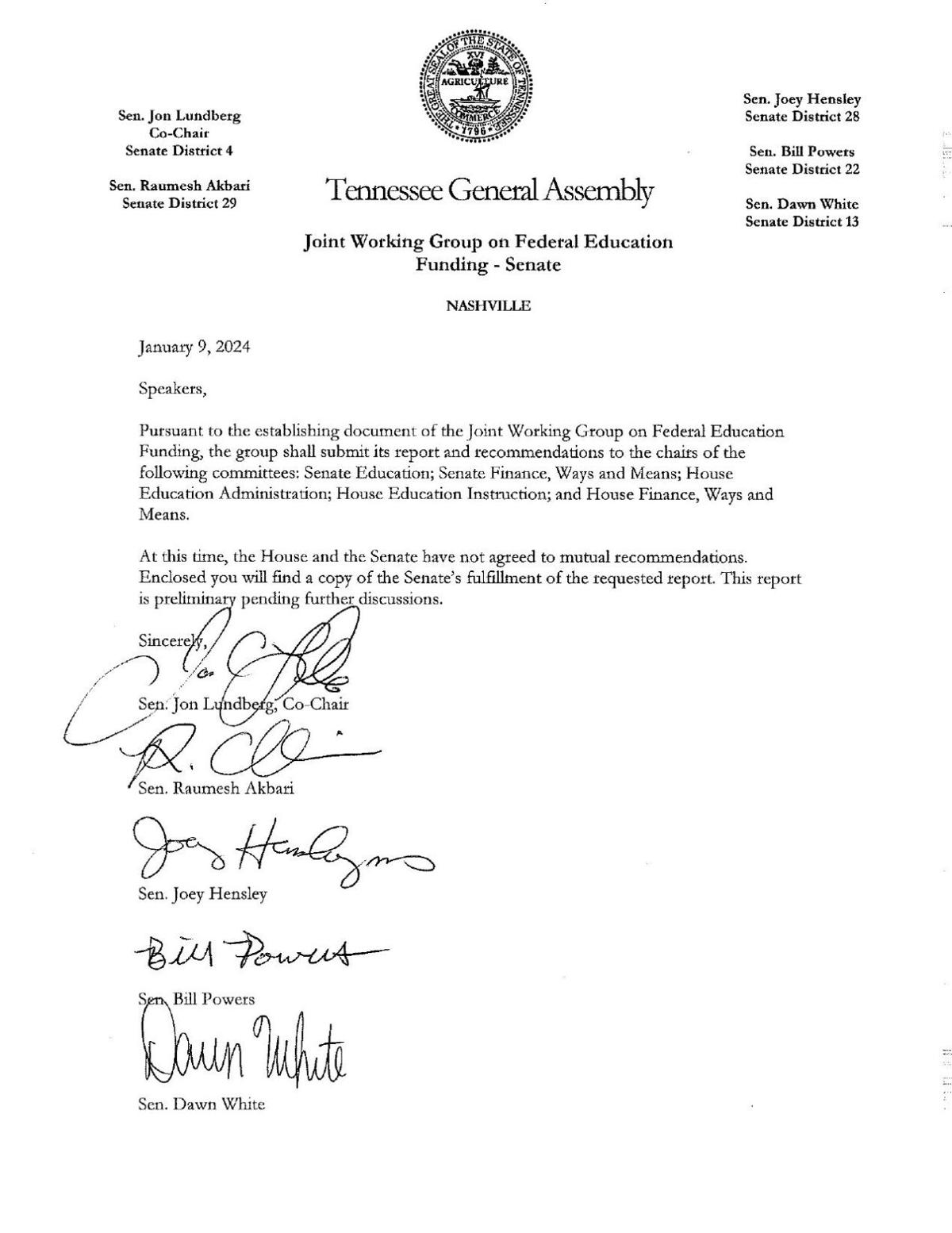
The Tennessee State Capitol in downtown Nashville
Lawmakers in the state Senate have released a report related to possibly rejecting more than $1 billion of federal education funds — about 10 percent of Tennessee’s education budget. The report lays out information regarding the amount of federal funding Tennessee and its school districts receive, how it’s distributed, the laws and requirements attached to these funds, and recommendations for potentially working around them.
The Senate report comes after House Speaker Cameron Sexton (R-Crossville) and Lt. Gov. Randy McNally (R-Oak Ridge) tasked a joint House and Senate working group with exploring the idea of rejecting federal education funds last year, a move that other states have considered but haven't enacted. Republicans pushed the matter to explore which “strings” are attached to federal education funding, and whether the money is worth the requirements associated with it.
Related hearings were held in November, with a subsequent report due Jan. 9 — the first day of 2024’s legislative session. November’s hearings included information from sources like the Sycamore Institute, the Tennessee Department of Education and school leaders from across the state. On the last day of the hearing, House leaders heard from the Center for Practical Federalism and right-wing think tank the James Madison Institute. Senate leaders were not present that day to hear those presentations.
The House has not yet released a report. A letter accompanying the Senate’s report states that it is “preliminary pending further discussions” and that “at this time, the House and Senate have not agreed to mutual recommendations.” While the joint working group’s House co-chair, Rep. Debra Moody (R-Covington) was not available for comment, a representative from the office of Speaker Sexton tells the Scene that the release date for the House’s report is unknown. “The House agreed with [the] Senate’s options for consideration, however the Senate would not agree with the House’s actionable recommendations moving forward,” reads a statement from Sexton’s office. “Unfortunately, each body will be filing their own report which will be very similar but not identical.”
The state receives federal education funding through various programs. The largest sources include the Every Student Succeeds Act (formerly known as the Elementary and Secondary Education Act) and the Individuals With Disabilities Education Act. The former provides funding meant to address educational inequities for economically disadvantaged students, English learners and more; related obligations include reporting, accountability and assessment requirements. The latter supports students with disabilities and requires states to provide a “free appropriate public education” through individualized education plans, among other measures. The U.S. Department of Agriculture also contributes a large share of federal funding to provide free meals to qualifying students, though it has nutritional guidelines that must be met.
The report states that even if federal K-12 funds are rejected, federal requirements could still apply, “creating questions that would likely be resolved in court.” Additionally, at more than $1 billion, the cost of replacing the federal funds with state money would be substantial — more than the annual budget for all but a handful of state departments. “Tennessee still likely has room in the budget to reject and replace recurring federal funding in K-12 education, but at the expense of other potential investments,” reads the report.
The report suggests considering exercising flexibilities within federal laws, requesting waivers from certain requirements, attempting to reauthorize federal education laws and involving legislators in grant processes for the Tennessee Department of Education.
“There are more questions than definitive answers about what rejecting federal K-12 dollars could mean for Tennessee’s obligations because no state has ever done so,” reads the report.
Read the full report here:






